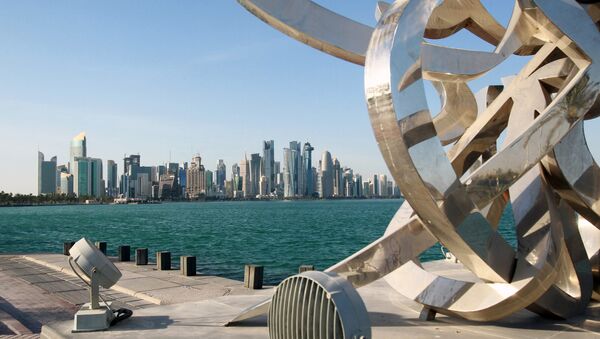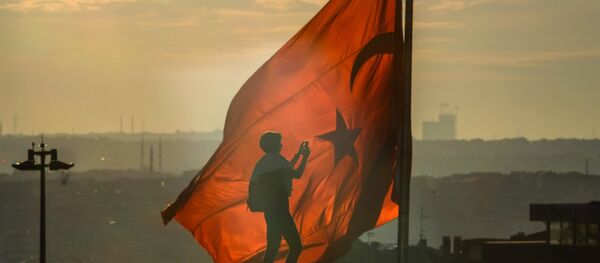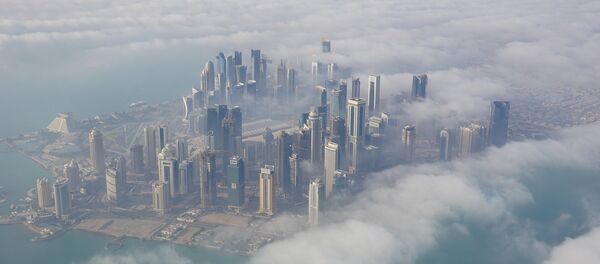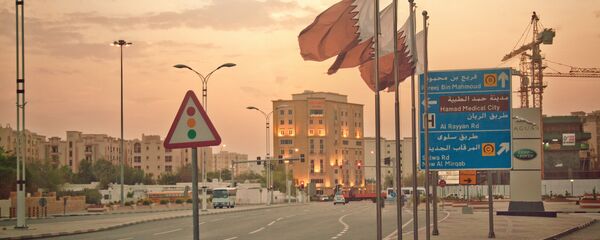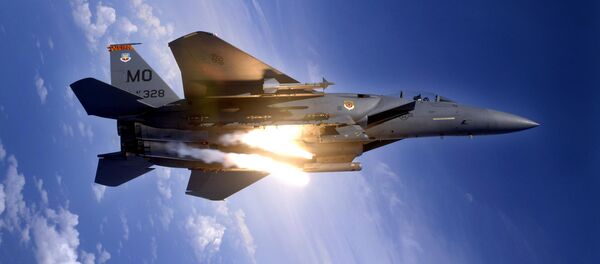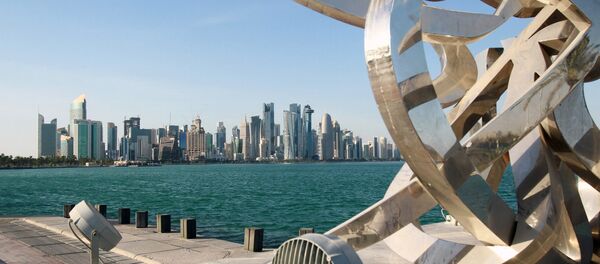The trip of the Turkish foreign minister is directly related to the situation in the region amid the ongoing major diplomatic scandal, involving Qatar, Saudi Arabia, the United Arab Emirates, Bahrain and Egypt.
On June 5, those countries cut diplomatic ties with Qatar and embargoed all sea, air and land traffic to the country, accusing Doha of supporting terrorists and destabilizing the Middle East, and several other states in the region reduced diplomatic relations with the country.
However, Turkey and a number of Middle East countries, including Iran and Iraq refused to support this move and started making attempts to help Qatar to break the isolation.
Turkey Wants to Support Qatar
Since the very outbreak of the crisis, Ankara has denied the allegations against Doha and called for the restoration of ties with Qatar, especially in fighting terrorism.
Qatar has shown the most decisive stance against the terrorist organization Islamic State alongside Turkey. Victimizing Qatar through smear campaigns serves no purpose," Erdogan told members of his part in Ankara.
The Turkish president stressed that the crisis should be resolved by Saudi leader King Salman.
"Cavusoglu first visited Doha where he had talks with Qatari Foreign Minister Mohammed Al Thani. Then the minister travelled to Kuwait which is playing the role of a mediator in the crisis. The final destination will be made in Saudi Arabia where talks are likely to be held in a bid to reconcile the conflicting parties," RIA Novosti contributor and political commentator Vladimir Ardayev wrote in a recent op-ed.
Meanwhile, on June 9, Erdogan approved legislation allowing the deployment of Turkish troops to Qatar. According to Turkish Ambassador to Qatar Ahmet Demirok, about 3,000 soldiers of the ground forces, servicemen of the country's air forces and navy, as well as instructors and special forces, will be deployed at a Turkish base in Qatar.
'New Coalition'
In addition to Erdogan, the isolation of Qatar was criticized by the Iraqi government. Prime Minister Haid al-Abadi said that the blockade of Qatar is aimed against its people, rather than the policy of the Qatari government.
"Thus, a new coalition is now taking shape, including those opposing the diplomatic isolation and the economic blockade of Qatar. At first sight, this coalition seems unexpected because it comprises such longtime strategic rivals as Turkey and Iran," the author noted.
Jordanian government spokesman Mohammed al Momani stressed that the kingdom’s efforts will be aimed at "preserving regional stability."
According to Labib Qamhawi, a Jordanian political expert on Middle East affairs, Jordan will not be actively engaged in the conflict.
"Jordan is not a member of the Gulf Cooperation Council. And they'd rather not be involved in, but they cannot. And they wanted to, most importantly, to appease Saudi Arabia, to make sure that the Saudis are not upset. So they were looking to do the bare minimum that will be acceptable. Jordan will not interfere while not try to mediate. It is too complex," Qamhawi told The Jerusalem Post.
Washington’s Inconsistency
According to Foreign Policy magazine, the current turmoil in the Middle East resulted from the policy of the previous United States presidential administration.
"The origins of the current round of chaos can be found in former President Barack Obama’s decision to disengage the United States from the Middle East — just as the region was undergoing a wave of pro-democracy mass protests. In the power vacuum created by the US disengagement, various players saw both the space and the necessity to pursue their own independent, competing agendas — and in the ensuing melee, the voices of the Middle East’s people were brutally suppressed," the article read.
According to the article, the final nuclear deal with Iran further deepened the tensions while Barack Obama’s support for the Saudis added fire to an already burning region.
Commenting on the blockade of Qatar, US President Donald Trump wrote on Twitter: "So good to see the Saudi Arabia visit with the King and 50 countries already paying off. They said they would take a hard line on funding extremism, and all reference was pointing to Qatar. Perhaps this will be the beginning of the end to the horror of terrorism!"
However, several days later, it was reported that the Pentagon has finalized a $12 billion deal to sell 36 F-15 fighter jets to Qatar.
No One Needs War
"The polarization of forces following the blockade of Qatar is very dangerous, taking into account the situation in the Middle East. It may result in disastrous consequences," Ardayev wrote.
He noted that Doha’s opponents see the danger and realize that the total isolation of Qatar is impossible.
In turn, Egypt removed restrictions for Qatari airlines to use its airspace. At the same time, the UAE said airlines from third party countries can now use its airspace to fly to and from Qatar.

